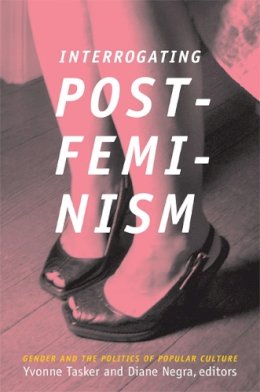
Interrogating Postfeminism: Gender and the Politics of Popular Culture
Yvonne Tasker
Essays by feminist film, media, and literature scholars based in the United States and United Kingdom provide an array of perspectives on the social and political implications of postfeminism. Examining magazines, mainstream and independent cinema, popular music, and broadcast genres from primetime drama to reality television, contributors consider how postfeminism informs self-fashioning through makeovers and cosmetic surgery, the “metrosexual” male, the “black chick flick,” and more. Interrogating Postfeminism demonstrates not only the viability of, but also the necessity for, a powerful feminist critique of contemporary popular culture.
Contributors. Sarah Banet-Weiser, Steven Cohan, Lisa Coulthard, Anna Feigenbaum, Suzanne Leonard, Angela McRobbie, Diane Negra, Sarah Projansky, Martin Roberts, Hannah E. Sanders, Kimberly Springer, Yvonne Tasker, Sadie Wearing
Product Details
About Yvonne Tasker
Reviews for Interrogating Postfeminism: Gender and the Politics of Popular Culture
Michele Schreiber
Film Quarterly
“The essays are written in a clear, politically-engaged style, and cohere well as a group. Collectively, they seek to clarify the term postfeminism and its connection to different waves and factions of feminist politics, and to explore how it can be more effectively used in media analysis. . . . the majority of essays are solid examinations of where postfeminist media analysis might go.”
Becca Cragin
Journal of Gender Studies
“This collection suggests that far from living in a clearly delineated post-feminist age, we are instead still in the process of negotiating this term. While literally, post-feminism suggests an era after feminism, and without the need for feminism, these contributors show, in their vast variety of interpretations of the term, that post-feminism is a term that can apply to those women who have benefited from feminism, as well as those who continue to maintain sexist traditional norms. However, all is not lost, as many of these essays suggest there is a blurring of the negative depictions of feminism in the way in which powerful women have come to be taken for granted. Feminism may be a movement that few women today wish to identify with, yet its effect on their lives and choices remains obvious and virtually impossible to deny.”
Evelyn Hartogh
M/C Reviews
